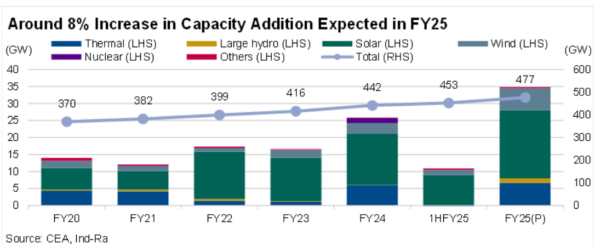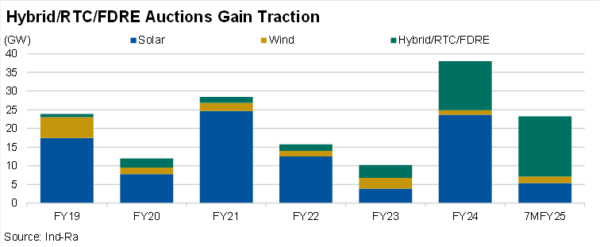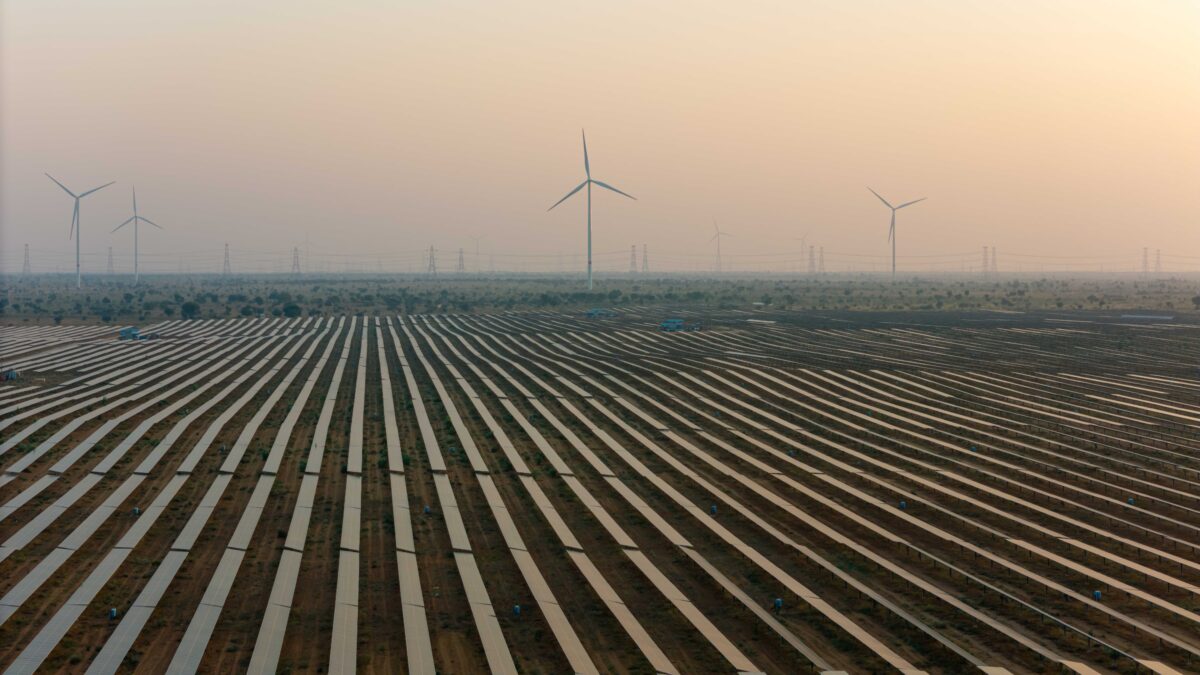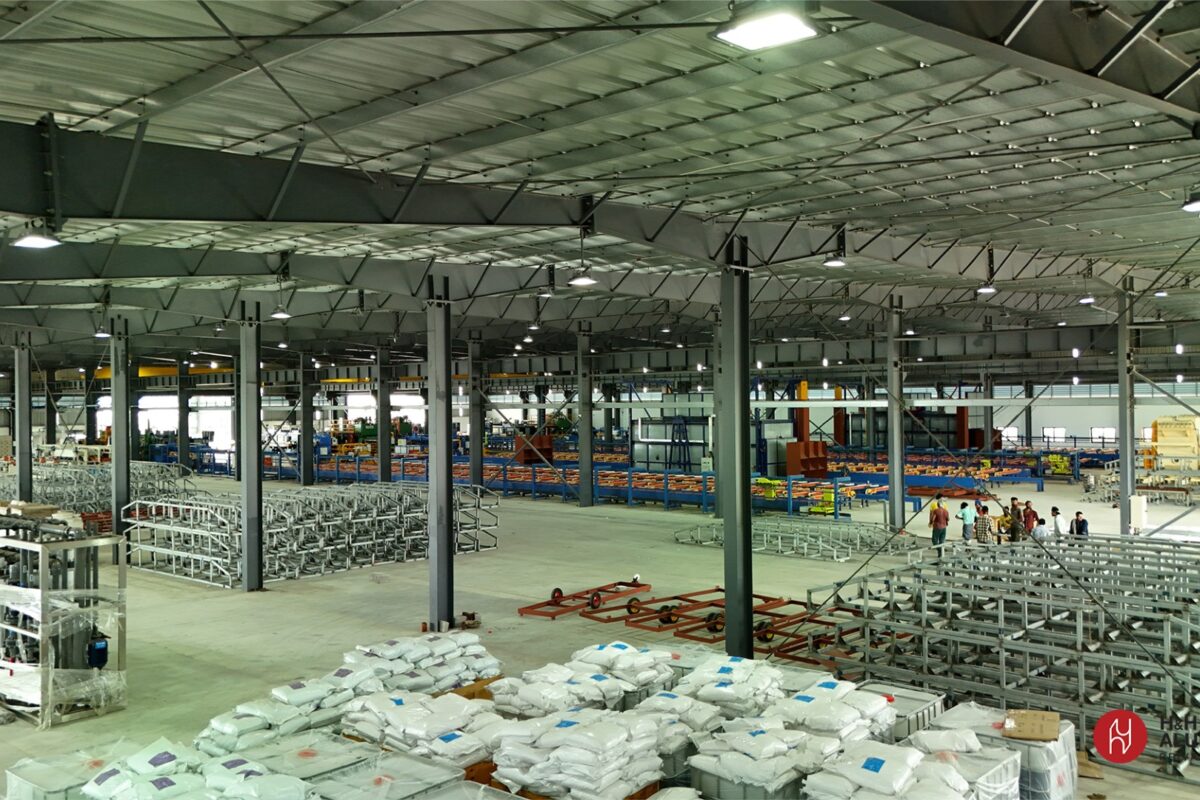All-India power generation capacity reached about 453 GW as of September 2024 with renewables (including large hydro) having a share of 45%. In terms of power generation, renewable energy’s share is expected to be 23% in FY25, says a new report by India Ratings & Research.
India Ratings expects the incremental capacity addition to continue to be dominated by renewables, with nearly 80 GW of under-construction solar, wind and solar-wind hybrid capacities, and another 95GW under various stages of development.
The agency expects 28-30 GW of renewable energy capacity addition this fiscal (11GW achieved in 1HFY25), largely under solar.

Energy storage projections
During April-October 2024, significant capacity of exceeding 25 GW were auctioned in the renewables space (compared to 38 GW in FY 2024 and 10 GW in FY 2023) with a larger share under firm and dispatchable renewable energy (FDRE)/peak/hybrid tenders. This reflects demand for adding ‘renewable energy capacity with storage’ to offset the risks stemming from the uncertainty and intermittency of renewable energy.

To illustrate the demand profile in a high demand day, Ind-Ra has analysed the demand profile on 23 May 2024. India’s peak demand on 23 May 2024 was at 3 PM of about 235 GW; however, the load on thermal plants peaked at 176 GW at around 11PM when the renewable energy supply was low.
With the large share of renewable energy addition planned to be solar, the requirement of a firm power supply in the evening peak hours remains critical for discoms. This is also leading to higher merchant tariffs during the evening hours than during solar hours.
Ind-Ra estimates India may require 8-12 GWh of storage by 2027 and 300-350 GWh by 2030 with storage requirement of 4-6 hours during the peak hours.
This content is protected by copyright and may not be reused. If you want to cooperate with us and would like to reuse some of our content, please contact: editors@pv-magazine.com.









2 comments
By submitting this form you agree to pv magazine using your data for the purposes of publishing your comment.
Your personal data will only be disclosed or otherwise transmitted to third parties for the purposes of spam filtering or if this is necessary for technical maintenance of the website. Any other transfer to third parties will not take place unless this is justified on the basis of applicable data protection regulations or if pv magazine is legally obliged to do so.
You may revoke this consent at any time with effect for the future, in which case your personal data will be deleted immediately. Otherwise, your data will be deleted if pv magazine has processed your request or the purpose of data storage is fulfilled.
Further information on data privacy can be found in our Data Protection Policy.